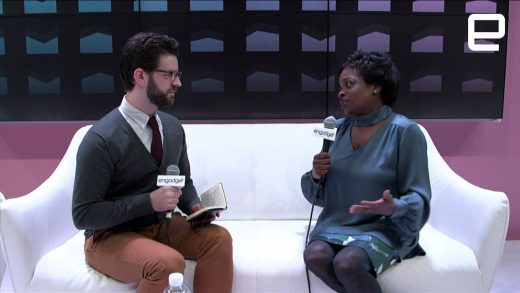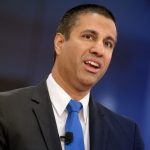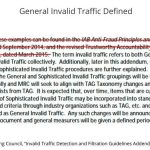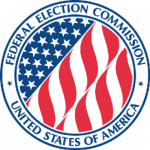FCC Commissioner Clyburn talks about net neutrality at CES
Commissioner Mignon Clyburn has been a vocal defender of net neutrality and even helped author the Open Internet Order in 2015. She was on the ground and Las Vegas for CES and was nice enough to make time to swing by the Engadget stage. She sat down to talk about the importance of net neutrality and her quest to protect it for future generations as well as how current policies are putting at risk those most vulnerable. Unfortunately, there were some technical problems with our audio during the interview, so we’ve included a slightly abridged transcript after the break.
Click here to catch up on the latest news from CES 2018.
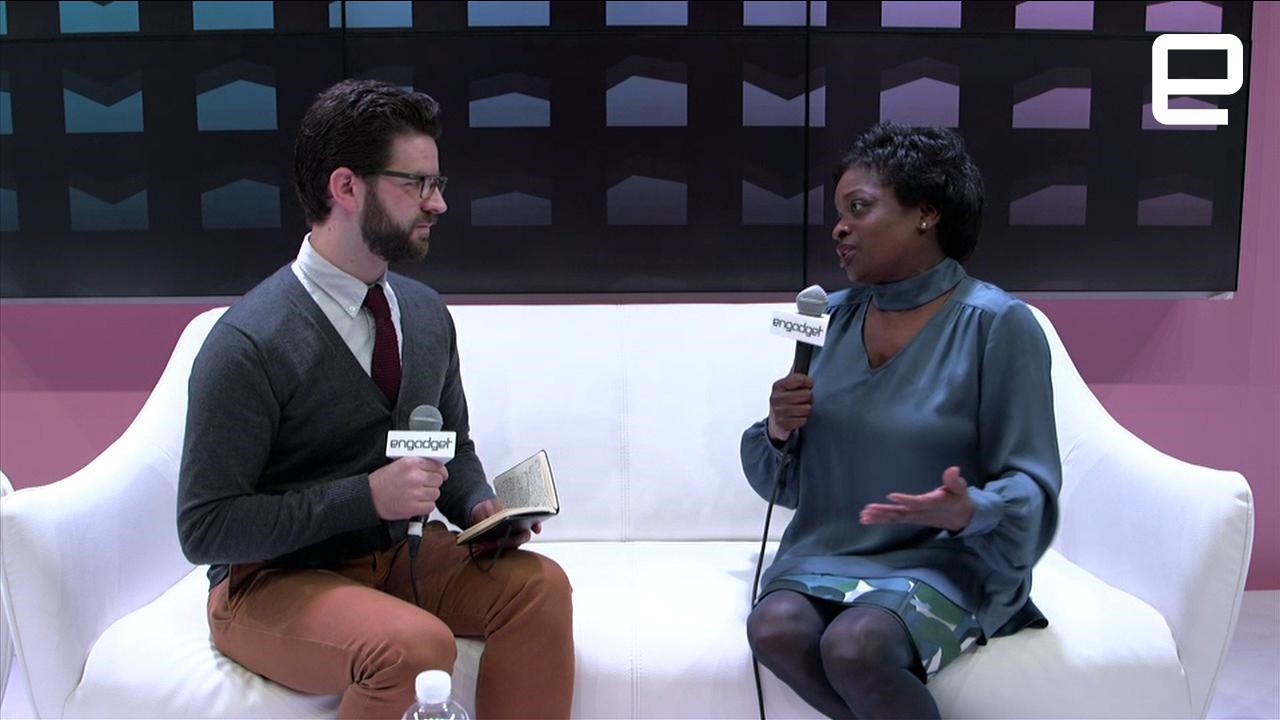
Terrence O’Brien: Hello, internet, and welcome back to CES. I am Managing Editor Terrence O’Brien, live from the Engadget stage from the floor at the insanely crowded and loud Las Vegas Convention Center, and we have a really special treat for you this morning. We have Commissioner Mignon Clyburn from the FCC. You’ve been there since 2009. You’ve helped draft the Open Internet Order, and you have been a very vocal defender of net neutrality.
Commissioner Mignon Clyburn: Absolutely. When we see all of this innovation in 2.4 million square feet of floor space — this was not accidental. This was pooled by good policy, I think, crafted and embodied in a 2015 Open Internet Order that provided certainty. That provided a means to oxygen, so to speak, to all of this innovation and investment.
O’Brien: So what is it about net neutrality that makes it so important to driving innovation? How does it fuel this market?
Clyburn: It took every aspect of the ecosystem and it took every player in this space. It provided certainty for those who need to access online. It said to you that no one, no entity would be able to block all the product or advantage of their business interests over yours. So it provided that level of certainty and openness and inclusion that I think we have taken for granted.
Now, the majority has said, we have basically handed the keys to the internet to large internet service providers. And that certainty is gone. They have the ability to do all the things that we fear the most. That, again, viewed all this innovation and inclusion. You don’t have to have a storeroom. It doesn’t even matter where you live if you have online activity. You are able to engage in the space. Commerce, education, help. All of these things are available to you. And that to me is the right shame in all of this.
O’Brien: And at the heart of the Open Internet Order was the reclassifying broadband as a Title II service. Do you still feel that Title II is the best way forward for protecting net neutrality?
Clyburn: It was the strongest legal authority prepared. It was upheld by the court. It provided the level of certain protections for everyone in this space. So I think that if you have that mind meld I’m gonna sort of trick you, or if you have that mind meld or regulatory meld that everyone is protected, everyone is enabled, then yes, I think that was the best foot forward.
O’Brien: Opponents argue that those rules were put in place in 1934 under the Telecommunications Act, and it’s kind of dated. But instead, they wanna go back to rules put in place in 1996, I believe. What’s changed? Why do you think going back to these pre-World War II rules is a better way forward?
Clyburn: I’m gonna take a slight issue with that.
O’Brien: Sure.
Clyburn: Foundation might have been laid by what we have learned in the past. Particularly when it comes to critical services like broadband. Like voice service. But what we did with the 2015 rules is we got rid of 25 provisions. We got rid of over 77 hundred rules in regulations. We got rid of those because they were no longer applicable in an innovative 21st-century space. You don’t throw away the foundation of what has enabled the protections and innovations in the first place. What you do is improve upon them. What you do is get rid of the rules that are no longer applicable.
You don’t just throw away years of what we’ve learned. Because again, what we see on this floor is based on years of what we’ve learned on the adapting of where we are headed. That’s to ignore and pretend that all of those things aren’t building blocks to innovative creativity and success. I think it’s shortsighted.
O’Brien: And I won’t lie and say I’ve read the entire repeal order. It is 546-something pages, I believe. But I did kind of peruse through it. I saw multiple times, stories cited, including from sites like Engadget. It seems as if they are trying to paint companies like Google who support net neutrality as being hypocritical and questioning their genuineness because they do things like remove YouTube from Amazon Echo’s shows and other things. Does that line of argument strike you as convincing?
Clyburn: Let’s be clear about what we are doing and what we have the authority to do. No. 1: We do not regulate edge providers, which Google is one. And No. 2, which is really No. 1, is we’re talking about access to the internet. So I don’t want us to conflate or confuse by how others who are not our internet service providers; how they conduct themselves. That’s another agency and another conversation.
What we’re talking about is your online experience and who is in charge of that experience. Is it you or is it your internet service provider? That is the question.
O’Brien: And I think critics say the repeal has put control in the hands of the service providers, and I’m gonna read a little bit from my notebook cause I wanna make sure I get these quotes right. So, not that long ago the chairman recorded a skit for the Federal Communications Bar event. He used to work at Verizon. He joked with a senior VP of Verizon that it was: “An awesome idea to “brainwash and groom a Verizon puppet to become the FCC chairman.” How does that impact his credibility and the credibility of the commission as a whole?
Clyburn: [I’m] not trying to defend the chair because again, he can do that for himself. But that night is a very quirky night in telecommunications. We call it the Telecommunications Prom, basically for geeks that are in the space. And so it’s sort of tongue-in-cheek. It’s our own correspondents’ dinner. It’s that. Again, people are joking around. You can take issue whether the joke was funny. Just looking at that at in isolation, I might not put too much weight on that. But I do put all the weight on what he’s been advocating for the past several years and what we did last month, which I think is problematic.
O’Brien: I think that what a lot of people took issue with is that in context it seems bad where Chairman Pai first announced the intentions to repeal net neutrality. I also believe Commissioner Michael O’Reilly suggested that no amount of public outcry could change their mind on it.
Clyburn: I’ll respond to that in this way: There were millions, tens of millions, of legitimate comments. The majority of those were not in favor of changing or shifting the course of repealing on net neutrality. There were 47,000 complaints that were not entered into the record, that the majority obviously did not take into account that showed that the ecosystem is not perfect. Those to me are problematic. They are issues that run counter, I believe, to us taking everything into account. Particular are people’s opinions about what direction I think we had.
So I do take issue with my colleagues ignoring all comments. Particularly the legitimate comments, because this impacts us. There are 300-plus million people who are impacted by the decision of three people. And I think, part of that evaluation matrix should include what you feel.
O’Brien: The impact seems to go beyond just this net neutrality repeal order as well. In November there was also repeal of rules around media conglomeration. Does that not also bode poorly for a future in which there is no net neutrality?
Clyburn: I think it’s problematic. The lifeline item that is problematic. People who are economically disadvantaged … their gateway to connectivity. You’ve got uncertainty, I believe, that will come at the state level. We’ve got a Universal Service Fund that is responsible for $4.5 billion a year going into local rural communities that would be impacted by our decision because we no longer have the strongest legal authority to ensure that money is flowing. So I know the headlines might read one way, but when you peel down; when you go to the next layer, there are a lot of everyday things that are happening that we take for granted in this country in terms of investments and local communities that are now at risk, because we moved in this direction.
O’Brien: And that lifeline also seems like it’s potentially in danger?
Clyburn: I am fearful that the one, the only program that we have that is targeted for affordability at the FCC is on. I can hear the death rattles right now, and that’s a shame. Because it’s not just about infrastructure investment, though that’s important. If you build it and I can’t afford to come? That’s problematic. I think we’re putting at risk the one program that will address those millions of people that can’t afford a dial tone and they certainly can’t afford Broadband access. That’s problematic for all of us.
O’Brien: I know you have a very busy schedule. I don’t want to take too much more of your time, but I also don’t want to end on such a downer note.
Clyburn: Oh no.
O’Brien: The Senate is about to vote on net neutrality again. What can people do if they really value those protections?
Clyburn: So, what I’ve been saying a lot is the FCC does not have the final word, and thank goodness for that. We’ve got a number of parties who said they will challenge this decision in court. I think if the court rules in favor of this innovation and listening to the will of the people, ensuring that we have certainty going forward, then I think that we have a positive feature. There’s a congressional resolution that you mentioned that I think is on the [verge] of reaching critical mass in terms of numbers. I think if they weigh in and say, and listening to their constituents, I think that there’s a positive future. I’m like you. I am an eternal optimist that the people’s voices and opinions will reign supreme, and I’m looking forward to that day.
O’Brien: Let’s hope so. Thank you so much, commissioner, for joining us. And make sure to stay tuned for more here live from Engadget.
(51)

